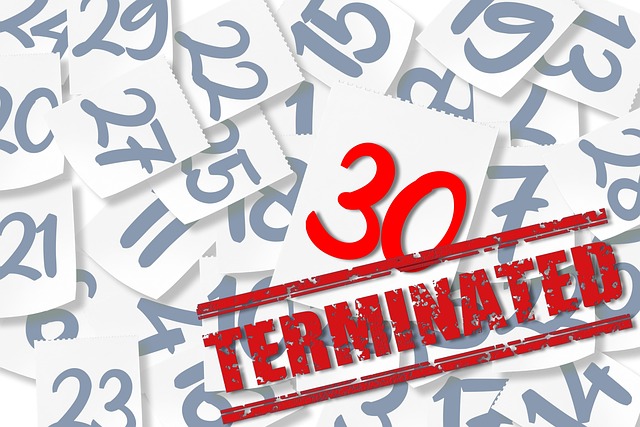In Oregon, enforcing child support payments follows a structured, state-governed process aimed at securing financial stability for children. The Department of Human Services (DHS) manages cases and collaborates with parents to fulfill obligations, which involve income-based support calculations, payment monitoring, and modifications as needed. Legal assistance from public programs or private attorneys helps navigate procedures. Effective enforcement requires regular communication with DHS to track payment history and ensure compliance with Oregon's support laws. The state's support enforcement agency collects, distributes payments, establishes orders, and offers guidance, ultimately benefiting children while ensuring legal compliance.
In Oregon, enforcing child support payments is a critical aspect of ensuring financial stability for children and their custodial parents. This comprehensive guide explores Oregon’s support enforcement laws and provides an in-depth look at the support payment process from calculation to collection. We discuss legal options for enforcing support payments, the roles and responsibilities of parents and the state, and resources available to facilitate effective support enforcement. Understanding these elements is key to navigating Oregon’s child support system successfully.
- Understanding Oregon's Child Support Enforcement Laws
- The Support Payment Process: From Calculation to Collection
- Legal Options for Enforcing Support Payments
- Roles and Responsibilities of Parents and the State
- Resources and Assistance for Effective Support Enforcement
Understanding Oregon's Child Support Enforcement Laws

In Oregon, enforcing child support payments is governed by a comprehensive set of laws designed to ensure financial stability for children. The state’s Department of Human Services plays a pivotal role in this process, managing cases and working with parents to meet their obligations. Understanding these laws is crucial for both parents involved, as it outlines the rights and responsibilities each party has during and after divorce or separation.
Oregon’s support enforcement process involves several steps, from initial determination of child support amounts based on guidelines considering income, to monitoring and modifying payments as circumstances change. Legal support is available through public assistance programs and private attorneys, enabling parents to navigate these complexities effectively. Regular communication with the Department of Human Services is essential for keeping track of payment history and ensuring compliance with the law.
The Support Payment Process: From Calculation to Collection

The process of enforcing support payments in Oregon involves several crucial steps, all aimed at ensuring that parents fulfill their financial obligations towards their children’s well-being. It starts with a thorough calculation of the child support amount based on the parents’ income and the number of children involved. This is typically done through the Oregon Support Enforcement Program (OSEP), which utilizes specific formulas to determine the payment amount. Once established, the parent ordered to pay support (obligor) must adhere to the set schedule. Payments can be made directly to OSEP or through a third-party provider, ensuring transparency and timely collection.
Legal enforcement mechanisms come into play when the obligor fails to meet their obligations. Oregon’s Department of Social Services (DSS) has various tools at its disposal, including wage garnishment, where the non-paying parent’s wages are directly withheld by their employer. The DSS can also place a lien on assets or property, seize tax refunds, and even suspend driver’s licenses as part of the support enforcement process. These measures serve to prompt compliance and ensure that children receive the financial support they are legally entitled to.
Legal Options for Enforcing Support Payments

In Oregon, there are several legal options available to enforce support payments and ensure that parents fulfill their financial obligations towards their children. The state’s support enforcement agency plays a pivotal role in facilitating this process. They have the authority to issue subpoenas, garnish wages, and even levy on bank accounts or assets if the parent in question is willfully failing to pay. These measures are designed to protect the best interests of the child and ensure regular financial support.
The support payment process can be initiated by either parent, or it may be done on behalf of the child by the Oregon Department of Human Services. Once a support order is established, any discrepancies or non-compliance can lead to enforcement actions. It’s crucial for parents to understand their responsibilities and the potential consequences of not adhering to the support plan. Legal support from an attorney specializing in family law can guide parents through this process, ensuring they know their rights and obligations every step of the way.
Roles and Responsibilities of Parents and the State

In Oregon, both parents have a shared responsibility to provide financial support for their children after separation or divorce. The state plays a crucial role in facilitating and enforcing child support payments to ensure the well-being and stability of minors. Parents are legally bound to contribute to their children’s upbringing, and the state has established a comprehensive system to enforce these obligations.
The Oregon support enforcement agency is responsible for collecting and distributing support payments, ensuring that children receive the financial assistance they need. They work with custodial parents (the parent with primary physical custody) to establish and modify support orders as necessary. The agency also provides resources and guidance to non-custodial parents to help them understand their obligations and make timely payments. This collaborative effort between parents and the state aims to create a fair and consistent support payment process, ultimately benefiting the children involved.
Resources and Assistance for Effective Support Enforcement

Enforcing child support payments can be a complex and challenging process, but there are numerous resources available to assist parents in Oregon. The state offers specialized support enforcement services designed to help ensure that both parents fulfill their financial obligations towards their children’s well-being. These services include legal aid, mediation, and various tools to track and manage support payments, making the process more manageable for all involved parties.
Oregon’s Department of Human Services provides a dedicated Child Support Division, which offers extensive assistance throughout the support payment process. They facilitate communication between parents, provide guidance on payment plans, and offer resources for those facing difficulties in collecting or paying child support. Legal support is also accessible through state-funded programs that connect low-income parents with lawyers who can navigate the legal aspects of enforcement, ensuring that rights are protected and payments are collected effectively.






